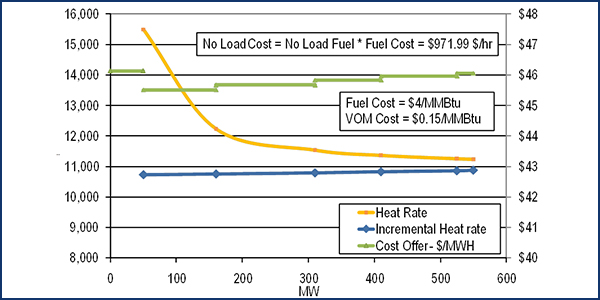FERC approved changes to PJM’s fuel-cost policy (FCP) rules on Tuesday, replacing annual reviews with a new periodic review process and eliminating the requirement for zero-marginal-cost units to submit FCPs (ER20-1764).
The deadlines for reviewing FCPs were also changed, giving the Independent Market Monitor an initial 10 business days to review a policy and an additional five business days when a market seller revises the policy. PJM will have 20 business days to review a policy and an additional five business days for reviewing revisions, although that time frame can be changed if agreed to by the RTO and the market seller.
The revisions are set to take effect on Sept. 1. They were proposed by the PJM Industrial Customer Coalition and endorsed by the Members Committee in March. (See Revised Fuel-cost Policy Approved by PJM MC.)
“We find that the revisions reduce administrative burdens on market sellers and PJM and afford certain flexibility without jeopardizing the purpose of requiring fuel-cost policies,” the commission said. “We also find that PJM’s proposal provides additional transparency regarding the conditions under which PJM will expire or terminate a fuel-cost policy and affords market sellers additional time within which to make modifications to a fuel-cost policy.”
PJM proposed six main revisions to its FCP rules. They include:
- Replacement of the annual review process with a periodic review process, easing the administrative burden of reviews while ensuring policies don’t become outdated. PJM anticipates setting a three-year expiration date for each policy.
- Removal of the requirement for resources with zero marginal costs to have FCPs. PJM argued it is an “unnecessary burden” to require market sellers of resources with no marginal fuel costs to submit FCPs to avoid a penalty because their fuel costs will always be zero.
- Allowance of a temporary cost offer methodology when a market seller does not have an approved FCP. PJM said the proposed methodology would allow a market seller to offer a “conservatively estimated, cost-based offer” while its FCP is under review by the RTO and the Monitor.
- Replacement of the revocation provision, with the ability for PJM to expire FCPs. The RTO cited three scenarios that would allow for the expiration period under consultation with the Monitor, including changes in governing documents, an inconsistent cost estimation method or the failure to update a generation transfer to another market seller.
- Revisions to the existing penalty calculation, including reduction of penalties for noncompliant cost-based offers where there is no market impact or the market seller self-identifies an error in the cost-based offer.
- Elimination of the penalty for noncompliant cost-based offers if the reason for fuel pricing or cost estimation deviation is because of an “unforeseen event” outside of the control of the market seller, its agents or affiliated fuel suppliers.
FERC determined that PJM’s revisions to the penalty calculation structure will “diminish the potential volatility in the current penalty amount while not limiting the deterrent effect of the penalties.” The commission also said it believed the penalty structure revisions will “appropriately represent the overall market impact a market seller’s noncompliant cost-based offer may have had on the market over the time period of noncompliance.”




